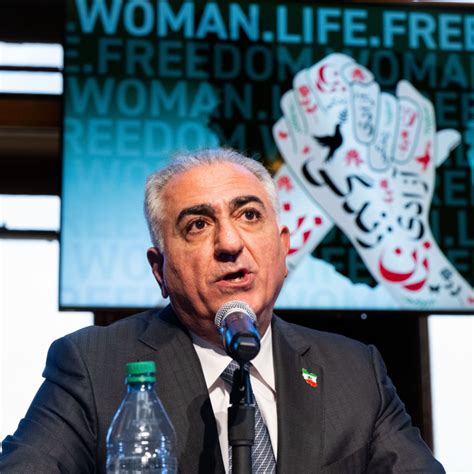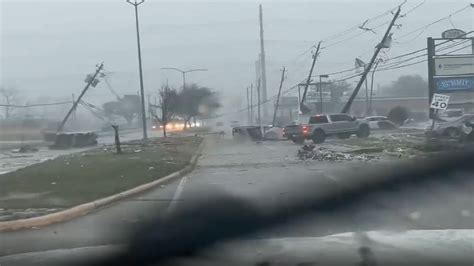
Actor and model Josslyn Aguilera, known professionally as Joss Dead, was found dead in her Los Angeles apartment on Sunday, prompting a police investigation into a possible hate crime after friends reported the victim had been receiving hateful messages for months due to her transgender identity.
Los Angeles authorities are investigating the death of Josslyn Aguilera, a transgender actress and model who performed under the name Joss Dead, as a potential hate crime after she was found dead in her apartment in the Sawtelle neighborhood of Los Angeles on Sunday. The Los Angeles Police Department (LAPD) is actively examining evidence and interviewing potential witnesses, considering the possibility that Aguilera’s death was motivated by anti-transgender bias, particularly given reports from friends indicating she had been subjected to transphobic harassment and threatening messages leading up to her death. The investigation is ongoing, and the LAPD has not yet released any official statements regarding potential suspects or motives.
Friends of Aguilera, who was 25, reported that she had been the target of escalating harassment, including threats and derogatory messages, specifically targeting her gender identity. “They did not accept our relationship,” stated one of Aguilera’s close friends, highlighting the discriminatory sentiments directed toward her and her relationships. The LAPD is taking these reports seriously, focusing on whether the harassment directly contributed to Aguilera’s death. Detectives are meticulously analyzing Aguilera’s social media accounts, emails, and other digital communications to identify the sources of the threatening messages and to determine if any of these interactions could provide leads in the case. Additionally, the police are reaching out to LGBTQ+ advocacy groups and community leaders to gather further information and context regarding the harassment Aguilera experienced.
Aguilera’s death has sparked outrage and grief within the LGBTQ+ community and among her fans, many of whom are calling for a thorough investigation and justice for what they fear was a hate-motivated attack. Social media platforms are flooded with messages of support and remembrance, as well as demands for greater awareness and protection for transgender individuals. Advocates are pointing to the broader issue of violence and discrimination against transgender people, particularly transgender women of color, who often face disproportionately high rates of harassment, assault, and murder.
The investigation is being conducted with the involvement of the LAPD’s Hate Crimes Unit, underscoring the seriousness with which law enforcement is treating the potential hate crime aspect of the case. The unit specializes in investigating crimes motivated by bias or prejudice based on race, religion, sexual orientation, gender identity, or other protected characteristics. Detectives are working to determine whether Aguilera’s death meets the legal criteria for a hate crime under California law, which includes acts of violence, threats, or intimidation motivated by the victim’s identity. If the investigation confirms that Aguilera was targeted because of her transgender identity, the perpetrators could face enhanced penalties under hate crime statutes.
The Los Angeles County Coroner’s Office is conducting an autopsy to determine the official cause of death. The results of the autopsy will play a crucial role in the investigation, helping to establish whether Aguilera’s death was the result of foul play or other factors. Law enforcement officials are urging anyone with information about the case, including those who may have witnessed suspicious activity or have knowledge of the threats and harassment Aguilera experienced, to come forward and assist with the investigation.
Aguilera’s career was on the rise, with recent roles in independent films and modeling projects. She was known for her activism and advocacy for transgender rights, using her platform to raise awareness about the challenges faced by the transgender community and to promote inclusivity and acceptance. Her death has left a void in the entertainment industry and among those who admired her dedication to social justice. Friends and colleagues remember her as a vibrant, talented, and compassionate individual who was passionate about her work and committed to making a positive impact on the world.
The broader context of Aguilera’s death highlights the ongoing crisis of violence against transgender individuals in the United States. According to numerous studies and reports from advocacy organizations, transgender people, particularly transgender women of color, face a significantly higher risk of experiencing violence and discrimination compared to the general population. This violence often stems from societal biases, prejudice, and lack of understanding, which can lead to hate-motivated attacks and systemic discrimination in areas such as employment, housing, and healthcare. The transgender community continues to advocate for greater legal protections, increased awareness, and comprehensive anti-discrimination policies to address these issues and create a safer and more inclusive society for all transgender individuals.
The investigation into Aguilera’s death is ongoing, and authorities are urging anyone with information to contact the Los Angeles Police Department. The case serves as a stark reminder of the vulnerability of transgender individuals and the urgent need for continued efforts to combat hate and discrimination.
Expanded Details and Context:
Josslyn Aguilera’s untimely death has reverberated far beyond her immediate circle, spotlighting the persistent and pervasive dangers faced by transgender individuals, particularly transgender women of color, in contemporary society. The case underscores the urgency of addressing systemic inequalities, combating hate speech, and fostering a culture of acceptance and understanding.
Aguilera, who used the professional name Joss Dead, was not only an emerging talent in the entertainment industry but also a vocal advocate for transgender rights. Her work in independent films and modeling provided her with a platform to raise awareness about the challenges faced by the transgender community, and she used her voice to promote inclusivity and equality. Friends and colleagues remember her as a passionate and dedicated individual who was committed to making a difference in the world.
The LAPD’s decision to involve the Hate Crimes Unit in the investigation reflects the seriousness with which law enforcement is treating the potential hate-motivated nature of Aguilera’s death. The Hate Crimes Unit specializes in investigating crimes motivated by bias or prejudice based on race, religion, sexual orientation, gender identity, or other protected characteristics. Detectives are meticulously gathering evidence and interviewing potential witnesses to determine whether Aguilera was targeted because of her transgender identity. If the investigation confirms that this was the case, the perpetrators could face enhanced penalties under hate crime statutes.
The reports of escalating harassment and threatening messages that Aguilera received in the months leading up to her death are particularly concerning. These reports suggest that she was being deliberately targeted because of her transgender identity, and that the harassment may have played a direct role in her death. The LAPD is analyzing Aguilera’s social media accounts, emails, and other digital communications to identify the sources of the threatening messages and to determine if any of these interactions could provide leads in the case. They are also reaching out to LGBTQ+ advocacy groups and community leaders to gather further information and context regarding the harassment Aguilera experienced.
The broader context of Aguilera’s death highlights the ongoing crisis of violence against transgender individuals in the United States. According to numerous studies and reports from advocacy organizations, transgender people, particularly transgender women of color, face a significantly higher risk of experiencing violence and discrimination compared to the general population. This violence often stems from societal biases, prejudice, and lack of understanding, which can lead to hate-motivated attacks and systemic discrimination in areas such as employment, housing, and healthcare.
The National Center for Transgender Equality (NCTE), a leading advocacy organization for transgender rights, reports that transgender people are nearly four times more likely than cisgender people to experience violent victimization, including rape, sexual assault, and aggravated or simple assault. Transgender women of color face an even higher risk of violence, with many experiencing intersectional discrimination based on their race, gender identity, and other factors.
The Human Rights Campaign (HRC), another prominent LGBTQ+ advocacy organization, tracks incidents of fatal violence against transgender and gender non-conforming people in the United States. According to HRC’s data, at least 32 transgender and gender non-conforming people were killed in the United States in 2023, the majority of whom were transgender women of color. While this number represents a decrease from previous years, it is still significantly higher than the number of homicides reported among the general population.
Advocates argue that these statistics represent only the tip of the iceberg, as many incidents of violence against transgender people go unreported due to fear of discrimination, lack of trust in law enforcement, and other factors. They also point out that the violence against transgender people is often motivated by bias and prejudice, and that it is often accompanied by hateful rhetoric and dehumanizing language.
The transgender community continues to advocate for greater legal protections, increased awareness, and comprehensive anti-discrimination policies to address these issues and create a safer and more inclusive society for all transgender individuals. They are calling for federal legislation that would explicitly prohibit discrimination based on gender identity in areas such as employment, housing, and healthcare. They are also advocating for increased funding for programs that support transgender people, such as mental health services, job training, and housing assistance.
In addition to legal and policy changes, advocates emphasize the importance of education and awareness campaigns to combat prejudice and promote understanding of transgender issues. They are working to educate the public about the diversity of gender identities and expressions, and to challenge harmful stereotypes and misconceptions about transgender people. They are also encouraging allies to speak out against discrimination and to support transgender people in their communities.
The death of Josslyn Aguilera serves as a stark reminder of the vulnerability of transgender individuals and the urgent need for continued efforts to combat hate and discrimination. It is a call to action for policymakers, law enforcement officials, community leaders, and individuals to work together to create a society where all transgender people are safe, respected, and valued.
The investigation into Aguilera’s death is ongoing, and authorities are urging anyone with information to contact the Los Angeles Police Department. The case is being closely monitored by LGBTQ+ advocacy groups and community leaders, who are demanding a thorough and transparent investigation and justice for Aguilera. They are also using the case to raise awareness about the broader issue of violence against transgender individuals and to advocate for greater protections and support for the transgender community.
The Los Angeles County Coroner’s Office is conducting an autopsy to determine the official cause of death. The results of the autopsy will play a crucial role in the investigation, helping to establish whether Aguilera’s death was the result of foul play or other factors. Law enforcement officials are urging anyone with information about the case, including those who may have witnessed suspicious activity or have knowledge of the threats and harassment Aguilera experienced, to come forward and assist with the investigation.
Aguilera’s career was on the rise, with recent roles in independent films and modeling projects. She was known for her activism and advocacy for transgender rights, using her platform to raise awareness about the challenges faced by the transgender community and to promote inclusivity and acceptance. Her death has left a void in the entertainment industry and among those who admired her dedication to social justice. Friends and colleagues remember her as a vibrant, talented, and compassionate individual who was passionate about her work and committed to making a positive impact on the world.
The broader context of Aguilera’s death highlights the ongoing crisis of violence against transgender individuals in the United States. According to numerous studies and reports from advocacy organizations, transgender people, particularly transgender women of color, face a significantly higher risk of experiencing violence and discrimination compared to the general population. This violence often stems from societal biases, prejudice, and lack of understanding, which can lead to hate-motivated attacks and systemic discrimination in areas such as employment, housing, and healthcare. The transgender community continues to advocate for greater legal protections, increased awareness, and comprehensive anti-discrimination policies to address these issues and create a safer and more inclusive society for all transgender individuals.
Further Contextualization:
The death of Josslyn Aguilera also raises questions about the role of social media platforms in addressing hate speech and online harassment. While many platforms have policies in place to prohibit hate speech and other forms of abuse, these policies are often inconsistently enforced, and hateful content can easily proliferate. Aguilera’s experience of being targeted with transphobic harassment and threatening messages highlights the need for social media companies to take more proactive steps to protect transgender users from online abuse.
Advocates are calling for social media platforms to invest in better content moderation tools and to train their moderators to recognize and respond to hate speech and other forms of online harassment. They are also urging platforms to be more transparent about their content moderation policies and to provide users with clear and effective ways to report abuse. In addition, some advocates are calling for social media companies to be held legally liable for the content that is posted on their platforms, arguing that this would incentivize them to take more seriously the problem of online hate speech.
The investigation into Aguilera’s death is a complex and multifaceted undertaking. Law enforcement officials are working to gather evidence, interview witnesses, and analyze digital communications to determine the circumstances surrounding her death. They are also consulting with LGBTQ+ advocacy groups and community leaders to gain a better understanding of the challenges faced by transgender individuals and to ensure that the investigation is conducted in a sensitive and respectful manner.
The case is being closely watched by the transgender community and by advocates for transgender rights. They are hoping that the investigation will lead to justice for Aguilera and that it will raise awareness about the broader issue of violence against transgender individuals. They are also using the case to advocate for greater protections and support for the transgender community, including increased legal protections, expanded access to healthcare, and more inclusive and accepting social policies.
The death of Josslyn Aguilera is a tragedy that has deeply affected the transgender community and the broader community of people who care about social justice. It is a reminder of the vulnerability of transgender individuals and the urgent need for continued efforts to combat hate and discrimination. It is also a call to action for all of us to work together to create a society where all transgender people are safe, respected, and valued.
FAQ:
1. What happened to Josslyn Aguilera (Joss Dead)? Josslyn Aguilera, a transgender actress and model known professionally as Joss Dead, was found dead in her Los Angeles apartment on Sunday. Police are investigating her death as a potential hate crime, as friends reported she had been receiving hateful messages due to her transgender identity.
2. Why is the LAPD investigating this as a potential hate crime? The LAPD is investigating the case as a potential hate crime because Aguilera’s friends reported that she had been receiving escalating harassment, threats, and derogatory messages specifically targeting her gender identity. The Hate Crimes Unit is involved in the investigation to determine if her death meets the legal criteria for a hate crime under California law.
3. What kind of harassment was Josslyn Aguilera reportedly experiencing? Aguilera was reportedly experiencing escalating harassment, including threats and derogatory messages targeting her gender identity. Friends stated that she was subjected to discriminatory sentiments, including those who “did not accept” her relationships.
4. What has been the reaction from the LGBTQ+ community and her fans? Aguilera’s death has sparked outrage and grief within the LGBTQ+ community and among her fans. There have been calls for a thorough investigation and justice, with social media flooded with messages of support, remembrance, and demands for greater awareness and protection for transgender individuals.
5. What resources are available for transgender individuals who are experiencing harassment or violence? There are numerous resources available for transgender individuals who are experiencing harassment or violence. Some of these resources include:
- The National Center for Transgender Equality (NCTE): Provides information and resources on transgender rights and advocacy.
- The Human Rights Campaign (HRC): Tracks incidents of fatal violence against transgender and gender non-conforming people and advocates for LGBTQ+ equality.
- Trans Lifeline: A hotline staffed by transgender people for transgender people, providing crisis support and resources.
- The Trevor Project: Provides crisis intervention and suicide prevention services to LGBTQ+ young people.
- Local LGBTQ+ community centers: Offer a variety of services and support groups for transgender individuals.
6. What steps are being taken to ensure a thorough investigation? The LAPD’s Hate Crimes Unit is actively examining evidence, interviewing potential witnesses, and analyzing Aguilera’s social media accounts, emails, and other digital communications to identify the sources of the threatening messages. They are also consulting with LGBTQ+ advocacy groups and community leaders. The Los Angeles County Coroner’s Office is conducting an autopsy to determine the official cause of death.
7. What are the legal implications if Aguilera’s death is classified as a hate crime? If the investigation confirms that Aguilera was targeted because of her transgender identity, the perpetrators could face enhanced penalties under hate crime statutes. This can include longer prison sentences and additional charges, depending on the specific circumstances of the crime and applicable laws.
8. How common is violence against transgender individuals? Violence against transgender individuals, particularly transgender women of color, is disproportionately high compared to the general population. Transgender people are nearly four times more likely than cisgender people to experience violent victimization, including rape, sexual assault, and aggravated or simple assault, according to the National Center for Transgender Equality (NCTE).
9. What is being done to address the issue of violence against transgender people? The transgender community and advocacy organizations are working to address the issue of violence through various means, including:
- Advocating for greater legal protections and anti-discrimination policies.
- Increasing awareness and education about transgender issues.
- Providing support services for transgender individuals, such as mental health care, job training, and housing assistance.
- Challenging harmful stereotypes and misconceptions about transgender people.
10. How can individuals support the transgender community in the wake of this tragedy? Individuals can support the transgender community by:
- Educating themselves about transgender issues.
- Speaking out against discrimination and hate speech.
- Supporting organizations that advocate for transgender rights.
- Donating to organizations that provide services to transgender individuals.
- Creating inclusive and welcoming environments for transgender people in their communities.
- Being an ally and standing up for transgender individuals when they witness discrimination or harassment.
11. What role do social media platforms play in addressing hate speech against transgender people?
Social media platforms have a crucial role to play in addressing hate speech and online harassment against transgender people. Advocates are calling for platforms to:
- Invest in better content moderation tools and training.
- Enforce their content moderation policies consistently.
- Be transparent about their policies and provide clear reporting mechanisms.
- Potentially be held legally liable for harmful content on their platforms.
12. What was Josslyn Aguilera’s impact as an actress and advocate?
Josslyn Aguilera was known for her activism and advocacy for transgender rights. She used her platform to raise awareness about the challenges faced by the transgender community and to promote inclusivity and acceptance. Her death has left a void in the entertainment industry and among those who admired her dedication to social justice.
13. Are there any specific details about the threats that Aguilera received prior to her death?
While the exact content of the threats has not been publicly released, reports indicate they were escalating and specifically targeted Aguilera’s gender identity. The LAPD is analyzing her digital communications to identify the sources of these threats.
14. What is the current status of the investigation?
The investigation is ongoing. The LAPD is continuing to gather evidence, interview witnesses, and analyze digital communications. The Los Angeles County Coroner’s Office is awaiting autopsy results.
15. Where can I find accurate and reliable information about transgender issues?
Reliable information about transgender issues can be found at:
- The National Center for Transgender Equality (NCTE)
- The Human Rights Campaign (HRC)
- GLAAD (Gay & Lesbian Alliance Against Defamation)
- Trans Lifeline
- The Trevor Project
16. How does California law define hate crimes, and what are the potential penalties? California law defines hate crimes as criminal acts committed because of the victim’s actual or perceived race, religion, ancestry, national origin, disability, gender, or sexual orientation. Potential penalties for hate crimes in California can include:
- Increased fines.
- Longer prison sentences.
- Mandatory hate crime education.
- Restraining orders to protect the victim.
The specific penalties depend on the underlying crime and whether it is charged as a misdemeanor or a felony. If Aguilera’s death is determined to be a hate crime, the perpetrators could face significantly harsher penalties than if it were treated as a standard homicide.
17. What are some of the systemic factors that contribute to violence against transgender individuals? Systemic factors contributing to violence against transgender individuals include:
- Societal biases and prejudice.
- Lack of understanding and acceptance.
- Hate speech and dehumanizing rhetoric.
- Systemic discrimination in areas such as employment, housing, and healthcare.
- Inadequate legal protections and enforcement.
- Lack of access to resources and support services.
18. How is the investigation being coordinated with LGBTQ+ advocacy groups?
The LAPD is reportedly coordinating with LGBTQ+ advocacy groups and community leaders to gather further information and context regarding the harassment Aguilera experienced and to ensure the investigation is conducted in a sensitive and respectful manner. This collaboration can help law enforcement better understand the dynamics of anti-transgender bias and the specific challenges faced by transgender individuals.
19. What impact does misgendering or deadnaming have on transgender individuals, and how can individuals avoid these practices?
Misgendering (using incorrect pronouns) and deadnaming (using a transgender person’s birth name after they have changed it) can have a significant negative impact on transgender individuals. These practices can invalidate their identity, cause emotional distress, and contribute to feelings of marginalization and discrimination. To avoid these practices:
- Ask transgender individuals what their preferred pronouns and name are.
- Use the correct pronouns and name consistently.
- Correct yourself and apologize if you make a mistake.
- Encourage others to use the correct pronouns and name.
- Respect a transgender person’s privacy and avoid asking intrusive questions about their gender identity.
20. What are the mental health implications for transgender individuals who experience harassment or violence?
Transgender individuals who experience harassment or violence are at increased risk for mental health problems, including:
- Depression.
- Anxiety.
- Post-traumatic stress disorder (PTSD).
- Suicidal ideation.
- Substance abuse.
It is crucial for transgender individuals who have experienced harassment or violence to seek mental health support from a qualified professional who is knowledgeable about transgender issues. Support groups and peer counseling can also be helpful.

![Oreo’s [Flavor] So Good, Petition Time? Fans Demand Permanent Cookie!](https://duniateknoku.com/wp-content/uploads/2025/06/unnamed-file-864-150x150.jpg)







